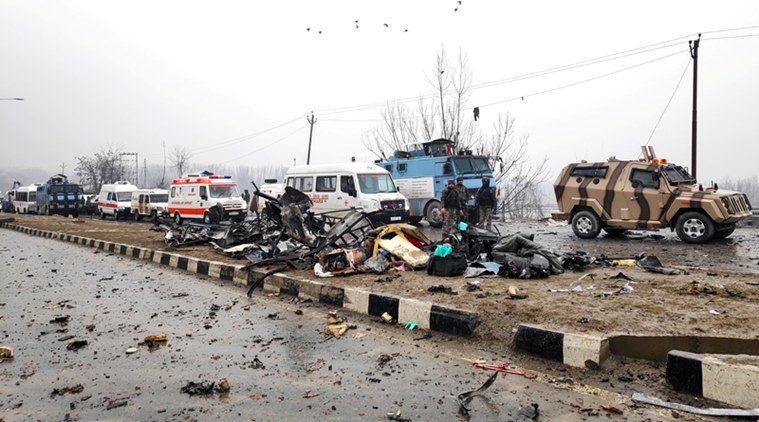Watcher of the Valley
Major General Afsir Karim was prescient about a Pulwama-like attack

The responsibility for the Pulwama terror attack, that resulted in the loss of precious lives of CRPF personnel, has been brazenly claimed by the JeM (Jaish-e-Mohammad). The objective of the terror group and their handlers was clearly more than blowing up the convoy of buses. Some of the more corrosive ripples have been felt across India by citizens of Kashmiri origin and, to the credit of the CRPF, the organisation has reached out to those who have been targeted because of the angry post-Pulwama mood currently animating some Indians.
In a commendable outreach that speaks volumes about the professionalism of the CRPF, a tweet reads: “Kashmiri students and general public, presently out of Kashmir can contact @CRPFmadadgaar on 24×7 toll free number 14411 or SMS us at 7082814411 for speedy assistance in case they face any difficulties/harassment.”
It is often forgotten that India is dealing with a complex Pakistan-sponsored proxy war in J&K that began in early 1990 with the forced expulsion of the local Hindu community. The Indian state abdicated its responsibility then and, 29 years later, a heavy price is being paid by the soldier. What are the objectives of this proxy war with its Islamic terror contour? Regrettably, the most insightful, informed and analytically incisive professional who had spent years studying this challenge to Indian security — Major General Afsir Karim — is no longer with us.
Afsir sir, as many of us referred to him, passed away on February 12 after a prolonged illness and was buried in Aligarh the following day, with his comrades-in-arms from the Para regiment doing the final farewell. Founder-editor of Aakrosh (India’s first transnational terrorism journal), Karim, in a prescient editorial (January 2018) cautioned that as part of the Pakistan-supported proxy war, there would be the “advent of fidayeens with the aim of causing maximum casualties among the security forces in high-security areas”. Pulwama occurred soon after his demise.
Detailing the objectives of the proxy war being waged by Islamic terror groups such as the JeM and the Lashkar-e-Taiba (LeT), Karim had specifically listed 10 of them. One objective is very relevant in relation to Pulwama: “Destroying political and social cohesion between diverse ethnic, caste and religious subgroups that exist in Kashmir” and, by extension, in the rest of the country. The insightful editorial also highlighted the proxy war pattern wherein, “Incidents calculated to increase alienation would be created.” Sadly, what is happening in those parts of India where the post-Pulwama outrage has manifested in Kashmiri-owned shops being damaged, are cases in point.
General Karim was the Division Commander in Gujarat before he retired in the late 1980s and had dealt with the emerging internal security challenges that would soon get embedded in the Indian political dynamic. His firm handling of certain covert and malevolent local political conspiracies that sought to stoke communal discord ensured that peace and order in his area of responsibility was not disturbed. While this was gratefully appreciated by the affected communities, my conjecture is that his superiors in Delhi were not quite enthused. However, given his deeply ingrained trait of not drawing attention to his many professional accomplishments, General Karim would never divulge more than what I needed to for my study on civil-military relations.










.png)




























No hay comentarios:
Publicar un comentario